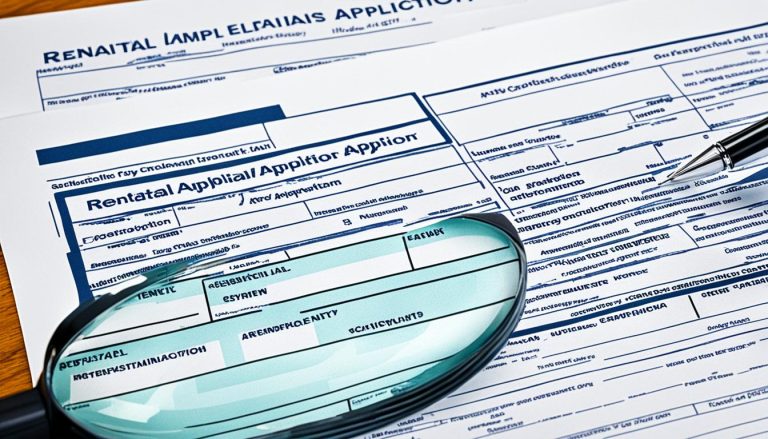When you’re a council tenant, life’s unexpected events such as illness, work obligations, or extended family trips can lead to time away from your home. However, being absent for too long without following proper procedures could put your tenancy at risk.
Understanding your rights, responsibilities, and the policies of your local authority is essential to avoid any serious consequences.
What Are the Standard Rules for Being Away From a Council House?

Local authorities in the UK generally allow council tenants to be away from their homes for a maximum of six consecutive weeks or up to eight weeks in total across a 12-month period without requiring formal notification.
This allowance is based on the understanding that everyone has valid reasons to travel or temporarily relocate, such as visiting family, taking a holiday, or dealing with short-term obligations.
However, these absence periods are not universal across all councils. Some local authorities set stricter or more flexible policies depending on local housing pressures, tenant history, and the specifics of the tenancy agreement.
For example, secure tenants may have slightly more leeway compared to introductory or flexible tenants, who are often under more scrutiny.
When a tenant is away for longer than the agreed duration without notifying the council, the property may be flagged for investigation. This could result in the local authority classifying the home as abandoned, which may initiate legal proceedings to repossess the property.
This makes it vital to read and understand your specific tenancy agreement or to consult with your local housing officer.
The tenancy agreement will often include a clause such as “the tenant must not be absent from the property for more than six weeks without informing the council.” Ignoring this clause could lead to tenancy enforcement actions or legal complications.
When Can Life Events Justify a Longer Absence From Your Council Property?
Life can be unpredictable, and councils recognise that tenants might face circumstances that necessitate a longer absence from their home.
These situations are evaluated on a case-by-case basis, and while extended absences are not encouraged, they are permitted under certain conditions with proper documentation and council approval.
One of the most common justifications is illness or hospitalisation, where a tenant may be under medical care for several weeks or months.
In such cases, councils typically require a medical certificate or hospital admission note confirming the expected duration of treatment and recovery.
Another valid reason is if a tenant needs to provide care for a relative, especially if the relative lives in a different town or abroad. Long-term caregiving situations often involve the submission of supporting documents, such as a letter from a GP or a social worker.
Employment-related reasons, such as temporary work assignments or job training, may also be considered legitimate grounds for absence. The council will often request a contract or formal letter from the employer to support the tenant’s claim.
Less common but still accepted reasons include extended bereavement-related travel or participating in rehabilitation programmes.
While these absences may be allowed, tenants are advised to:
- Notify the council well in advance
- Provide full transparency about the situation
- Stay reachable during the absence
Approval for absences longer than six weeks is not guaranteed, and each council applies its own discretion when reviewing cases.
How Should You Notify the Council About a Planned Absence?

When planning to be away from your council property for more than the allowable six weeks, tenants are required to formally notify their housing office. This step is crucial in maintaining the legitimacy of your tenancy and protecting yourself from any risk of legal action or eviction.
The notification should include essential information such as your full name, address, reason for the absence, expected departure and return dates, and a contact method while you’re away. Councils may also request documents to support the reason for your absence, such as:
- A hospital appointment letter or medical certificate
- A job offer or relocation letter from your employer
- Legal documentation if attending court or treatment programmes
Notification can usually be submitted via multiple channels. Most councils accept written letters, emails, or submission through their official housing portals. Some also allow in-person appointments, especially if the tenant prefers face-to-face interaction or has accessibility needs.
Once your notification is received, a housing officer may request a meeting or follow-up call to clarify the situation. If the absence is approved, it will be documented in your tenancy file.
Tenants are advised to keep a copy of all communication and confirmation from the council for their own records. It’s also wise to notify utility providers or neighbours if the absence is extended, though this is not a formal requirement.
Can You Lose Your Tenancy If You’re Away Too Long?
Yes, extended and unapproved absences can lead to tenancy termination if the council determines that the property has been abandoned.
Councils have a duty to ensure that public housing is occupied by those in need and cannot allow properties to sit vacant for indefinite periods without valid justification.
Once an absence is reported or discovered, a council may begin an investigation. This can involve:
- Visiting the property to check for signs of occupancy
- Interviewing neighbours or nearby residents
- Reviewing whether bills and council tax are still being paid
- Looking at previous tenancy conduct
If the council believes the property is no longer your main residence, they can issue a Notice to Quit. This legal document sets out the council’s intention to reclaim the home and terminate the tenancy agreement.
Tenants who fail to respond or provide valid evidence may find themselves subject to eviction.
Additionally, subletting the property during your absence is strictly prohibited under most tenancy agreements. It is considered a serious breach that often results in immediate legal action. Councils treat subletting as fraud, and some cases have even led to criminal prosecution.
In summary, being away for too long without prior communication or documentation exposes tenants to multiple risks, including:
- Permanent loss of their council home
- Suspension or termination of housing benefits
- Legal proceedings for abandonment or fraud
What Happens to a Council Tenancy When the Tenant Dies?

When a tenant passes away, the tenancy does not automatically end. The law provides for succession, a process where another individual may legally take over the tenancy if they meet specific criteria.
Councils assess succession claims on the basis of the Housing Act 1985 and the specific terms laid out in the tenancy agreement.
The most common successor is the deceased tenant’s spouse or civil partner, especially if they were living in the property at the time of death.
However, other family members, such as adult children, siblings, or carers, may also qualify if they can prove they lived in the property continuously for at least 12 months prior to the tenant’s death.
To apply for succession, the potential successor must provide:
- A death certificate
- Proof of residence (such as utility bills, bank statements, or tenancy letters)
- A completed succession application form (available from most councils)
Not all succession applications are approved. Councils may deny the request if the successor does not meet the legal requirements or if a previous succession has already occurred under the same tenancy.
In such cases, the council may offer temporary accommodation or assistance in finding alternative housing.
In cases where succession is approved, the new tenant may be required to downsize if the property is too large for their needs. This helps the council manage housing resources and ensure fair distribution.
What If You Are Offered Temporary Housing by the Council?
There are situations where the council may ask tenants to vacate their home temporarily due to:
- Structural repairs or renovations
- Redevelopment of the estate
- Health and safety concerns such as damp or asbestos
- Emergency incidents like flooding or fire
In these instances, the council is responsible for providing suitable temporary accommodation and ensuring that the tenant’s rights remain protected throughout the transition.
Tenants will receive formal communication from the council explaining:
- The reason for the relocation
- The estimated duration of the works
- Details of the temporary accommodation
- Conditions of the tenancy during the move
Crucially, the original tenancy continues to exist. The temporary move is not considered a new tenancy but an interim arrangement.
This means tenants retain all their existing rights, including rent protection and the right to return to their original home once the issues have been resolved.
During this period, tenants are expected to comply with the rules of the temporary accommodation and pay rent as usual. Housing benefit entitlements continue, and rent levels typically match those of the original property.
How Do Housing Benefits and Absence Policies Interact?

Council tenants receiving housing benefit must be particularly cautious when planning a prolonged absence, as it may impact their entitlement.
The Department for Work and Pensions (DWP) has clear rules about how long a person can be away from their main residence while still receiving benefits.
In most cases, tenants can continue to claim housing benefit for up to 13 weeks if they are away from home, provided that:
- The absence is temporary
- They intend to return
- The property is not sublet
- Rent continues to be paid
For tenants who are abroad, this period reduces to four weeks, unless the absence is for exceptional reasons, such as a death in the family or a medical emergency. In such cases, the benefit may be extended to eight weeks with appropriate documentation.
Council tenants must also consider the impact on council tax reductions. If the property is unoccupied for an extended period, they may lose discounts or be required to pay full council tax, depending on local policies.
Tenants should inform both the local council and the DWP about any planned absence that exceeds the standard limits. Failing to do so could result in:
- Suspension of benefits
- Repayment demands
- Potential fraud investigations
The key to maintaining your benefits is open communication, timely updates, and providing the required paperwork for your absence.
FAQs
What happens if I leave my council house empty for more than six weeks?
If you’re away for over six weeks without informing the council, they may consider the property abandoned. This can lead to legal action to reclaim the home.
Can I let a family member stay in my council home while I’m away?
Only if your tenancy agreement allows it and you have written permission from the council. Otherwise, it may be treated as unauthorised subletting.
How do I prove I haven’t abandoned my council property?
Keeping utility bills in your name, collecting mail, and maintaining regular contact with the council can help prove that the property remains your main residence.
What should I do if I need to leave for work abroad temporarily?
Notify the council with documentation such as a work contract and specify the expected duration. Approval is often granted for legitimate reasons.
Can I sublet my council house during my absence?
No, subletting is typically a violation of the tenancy agreement and can result in eviction. Always check your agreement and speak to your housing officer.
Is there any financial support available during long absences?
Housing benefit may continue for up to 13 weeks in approved situations. Council tax exemptions or reductions might also apply, depending on the reason for absence.
How long can I stay in temporary accommodation provided by the council?
The duration depends on the nature of the repairs or redevelopment. Your original tenancy usually remains in effect, and you should have the right to return.






